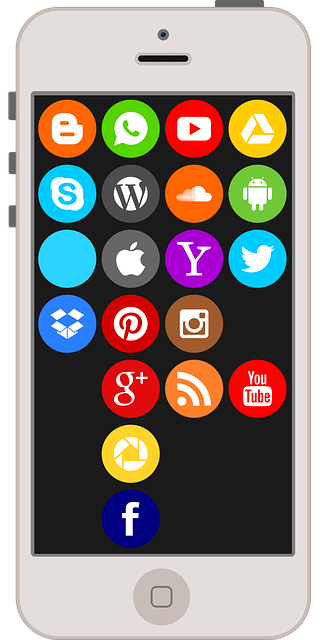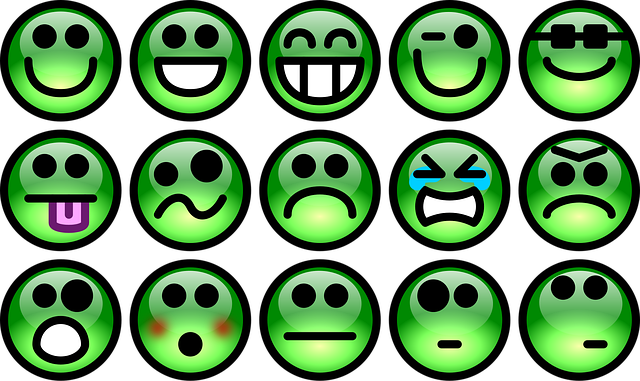An AI agent for marketing automates customer targeting and engagement using data analysis, machine learning, and chatbot automation. This technology predicts preferences, personalizes campaigns, enhances shopping experiences, drives conversions, and fosters brand loyalty in a data-driven landscape. Implement by automating tasks, monitoring algorithms, maintaining secure data, and collaborating with experts for customized solutions.
In today’s digital landscape, an AI agent for marketing is transforming how businesses connect with customers. This article explores the capabilities and potential of these intelligent tools, focusing on automating customer targeting. We’ll delve into strategies for personalizing marketing campaigns, uncovering benefits like enhanced engagement and improved ROI. Additionally, we provide implementation best practices to help you harness the power of AI agents effectively.
- Understanding AI Agent Capabilities for Marketing
- Automating Customer Targeting: Strategies and Techniques
- Benefits of AI in Personalizing Marketing Campaigns
- Implementation and Best Practices for AI Agents
Understanding AI Agent Capabilities for Marketing

An AI Agent for Marketing represents a significant leap forward in the industry, offering unprecedented capabilities to revolutionize customer targeting and engagement strategies. These intelligent agents are designed to process vast amounts of consumer data, including demographics, purchase history, and online behavior, to create highly personalized marketing campaigns. By leveraging machine learning algorithms, an AI agent can analyze patterns and make accurate predictions about customer preferences, enabling marketers to deliver targeted messages with remarkable precision.
The integration of an AI chatbot within these systems further enhances their functionality. Chatbots can engage in natural language conversations with potential customers, gathering insights and providing personalized recommendations. This interactive approach not only improves customer satisfaction but also facilitates data collection, allowing the AI agent to refine its targeting algorithms over time. With such advanced capabilities, businesses can expect to see improved conversion rates, enhanced brand loyalty, and a competitive edge in today’s data-driven marketing landscape.
Automating Customer Targeting: Strategies and Techniques

In the realm of marketing, an AI agent for marketing that automates customer targeting is a game-changer. By leveraging advanced algorithms and machine learning techniques, these intelligent systems analyze vast amounts of consumer data to identify patterns and preferences. This enables precise segmenting of target audiences based on demographics, behavioral history, and real-time interactions, ensuring every marketing effort reaches the most receptive customers.
The strategies employed by these AI agents go beyond simple demographic targeting. They employ chatbot automation to engage with potential clients, gathering valuable insights through conversational interactions. Moreover, machine learning models continuously refine targeting strategies based on user feedback and campaign performance data. Integrating an AI chatbot into marketing workflows not only enhances efficiency but also personalizes customer experiences, driving higher conversion rates and fostering stronger brand loyalty.
Benefits of AI in Personalizing Marketing Campaigns

The integration of AI agents for marketing has revolutionized the way businesses approach customer targeting and personalization. With its advanced algorithms, AI can analyze vast amounts of customer data in real-time, enabling marketers to create tailored experiences for each individual. This level of customization was once unimaginable, but it’s now a game-changer in driving engagement and conversions. By understanding consumer behavior patterns, an AI agent for marketing can predict preferences, allowing for highly relevant product recommendations and targeted campaigns.
One of the significant advantages is the efficiency it brings to ecommerce automation. Chatbot marketing, powered by AI assistants, can handle numerous tasks, from customer support to personalized messaging. These chatbots use natural language processing to interact with clients, providing instant assistance and gathering valuable insights. This not only enhances the overall shopping experience but also ensures that marketing efforts are more effective and focused on the right audience, ultimately leading to increased sales and improved customer satisfaction.
Implementation and Best Practices for AI Agents

Implementing an AI agent for marketing can significantly transform your customer targeting strategies. The key to success lies in defining clear objectives and integrating the AI workflow seamlessly into existing processes. Start by identifying specific tasks suitable for automation, such as data analysis, segmenting audiences, or personalizing content. Train your AI chatbot using relevant historical data to ensure accurate predictions and recommendations.
Best practices include regular monitoring and evaluation of the AI agent’s performance, fine-tuning its algorithms based on feedback, and keeping the underlying data fresh and secure. Collaborate with an AI automation agency to leverage their expertise in developing and deploying custom AI solutions tailored to your marketing needs. This strategic approach will enable you to maximize the benefits of AI technology in enhancing customer experiences and driving campaign success.
An AI agent for marketing represents a game-changer in the industry, offering unprecedented capabilities to automate customer targeting. By leveraging advanced algorithms and data analytics, these agents can personalize marketing campaigns at scale, enhancing engagement and conversion rates. Through strategies like predictive modeling, behavior analysis, and dynamic content delivery, businesses can optimize their outreach efforts. Implementation best practices include ensuring data quality, integrating with existing systems, and continuously training models to adapt to evolving customer behaviors. Embracing this technology allows marketers to navigate the complex digital landscape more effectively, ultimately driving business growth and success.
